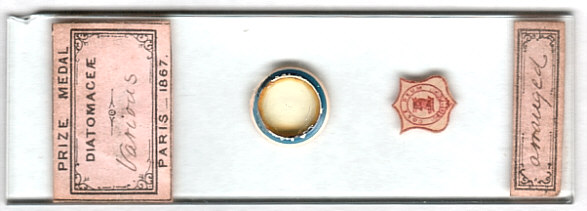 |
| Favourite Slides |
| A peep at a handful of slides from
the second half of the 19th. century
By Paul James (uk) |
1) " Diatoms...Various...arranged " A. C. Cole (mounted post 1867 )
This is probably the most frequently observed of all slides in my collection, and makes a good general test slide when comparing illumination techniques, resolution and flatness of field etc.
 |
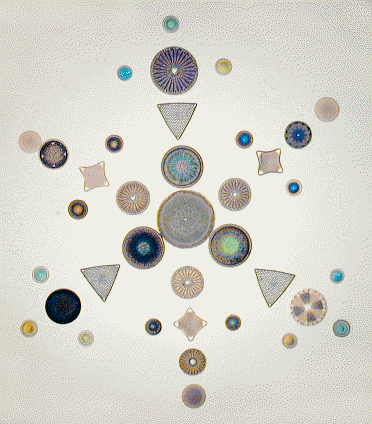 |
| Various
Diatoms. x60 In 'Snow Flake' form.
The substage diaphragm was reduced to enhance diffraction colours. |
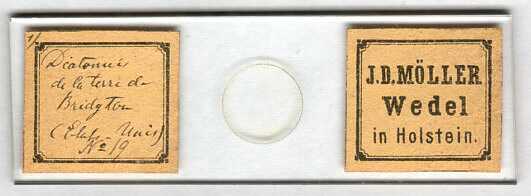 |
| This is my favourite
slide of diatoms by far. Apart from the wide variety present
they are mounted perfectly within the medium and can be scrutinised in any illumination form with ease. |
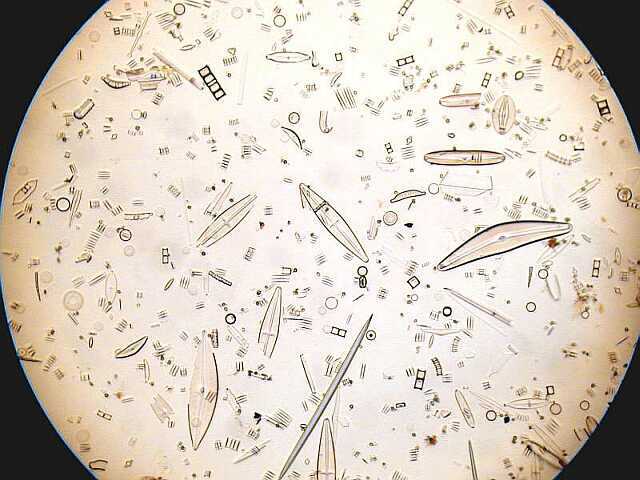 |
| Möller slide. x7 Wild Achromat showing variation of species |
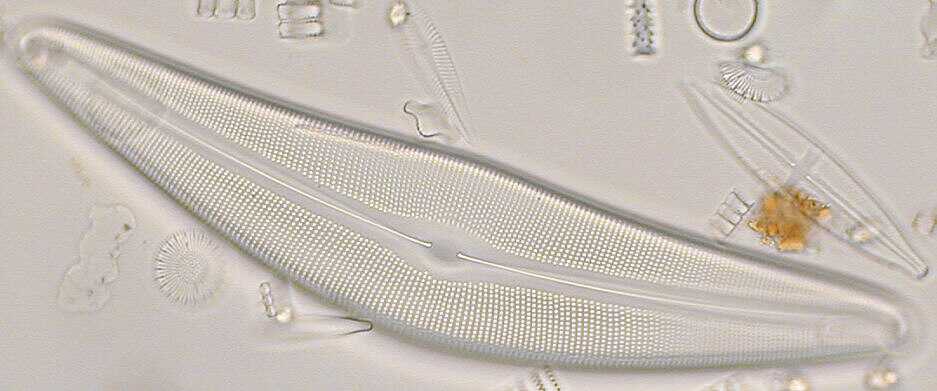 |
| Cymbella species
from Möller slide using x40 Carl Zeiss apochromat. Showing 'white
dot' focus
and the very limited depth of focus using partially oblique illumination. |
3) " Blow Fly" J. T. Norman (1814 - 1893 Mounted post 1843 )
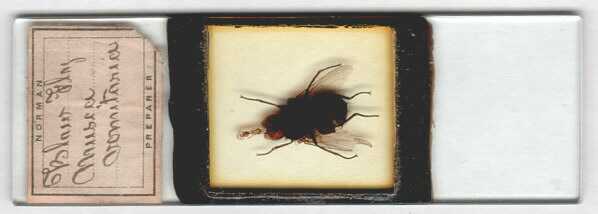 |
| Not an easy slide
to illustrate here unfortunately, but nevertheless a well mounted if not
unusual specimen and in great shape too. The black paint may have been added after the slide was originally prepared? |
This paper covered slide is in excellent condition and is the best of a number of blow fly slides I have.
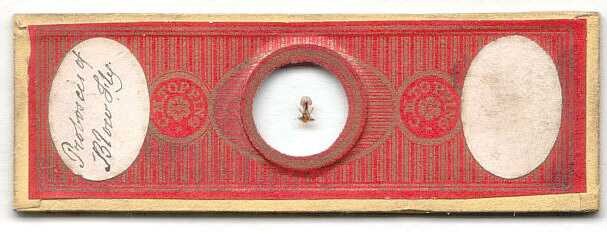 |
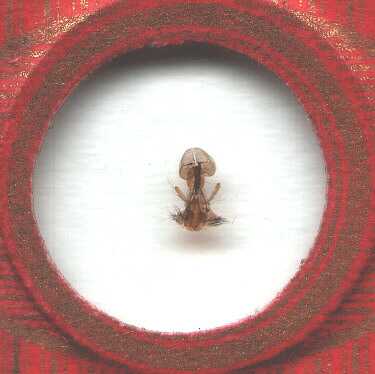 |
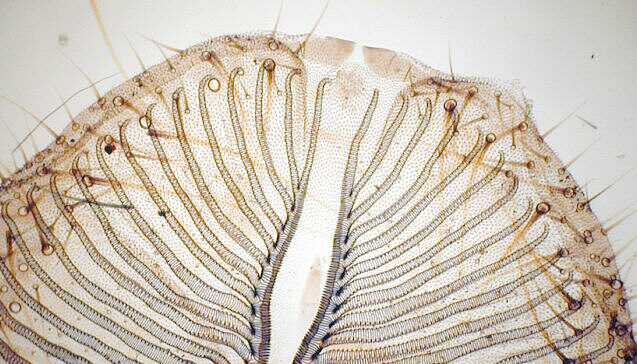 |
| Blow fly's proboscis.
Wild Achro x60. This specimen is perfectly flat with
very well preserved balsam considering its age, which is approximately 150 yrs old. Using a Wild x7 achromat, x8 Spencer oculars in a Zeiss photomic 1 the imagery of this specimen with mildly diffused lighting and lightly closed iris diaphgram, is simply incredible right across the full field. This is high praise for the optics and also the mounter, who had he been alive today would have been impressed too! (The photo above fails miserably to convey the direct 'live' viewing quality.) |
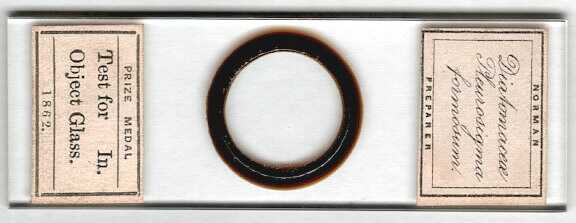 |
|
concerning test objective focal length or power . This was not an easy test for x40 objectives ( 1/6") of the day, but resolved more easily by contemporary designs with coated optics. Below.....Low power shot of strewn specimens.
|
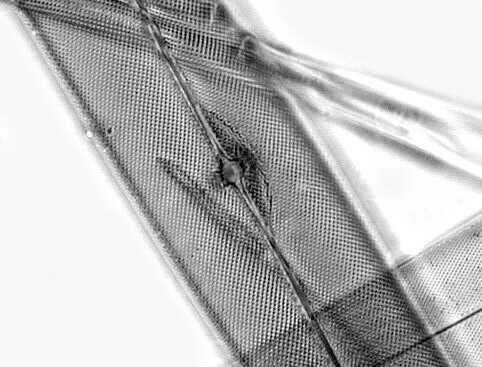 |
| Pleurosigma
formosum
(x800). x40 Wild achromat and x10 compensating ocular, plus x 2 'Optivar'. Cropped but Unsharpened image. Note finer dotting in adjacent specimen, and also optical distortion through silica filament near top. Grayscaled for clarity. |
6) Boracic acid crystals for polariscope. E Wheeler (mounted between 1866-1884 )
This is one of a number of 'polariscope' paper wrapped slides from this mounter and others. Edmund Wheeler sold his business and slides to W. Watson and Sons in 1884.
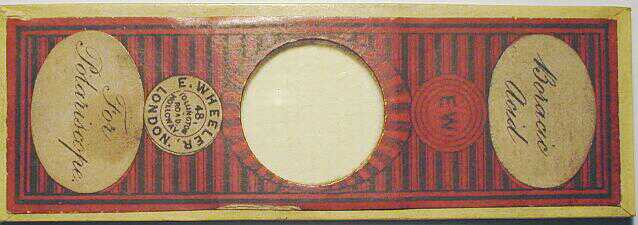 |
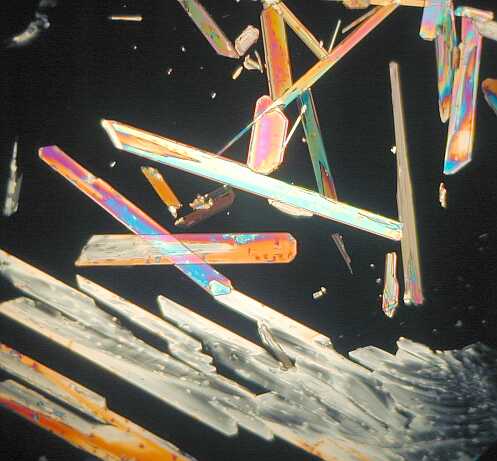 |
| Boracic acid crystals x20 under crossed polar filters . |
All photo's taken using a Nikon 800 in conjunction with Wild M20 and Zeiss Photomic1 microscopes
Slide portraits taken with a document scanner.
| Comments very welcome to Paul James. |
Please report any Web problems or offer
general comments to the Micscape
Editor,
via the contact on current Micscape
Index.